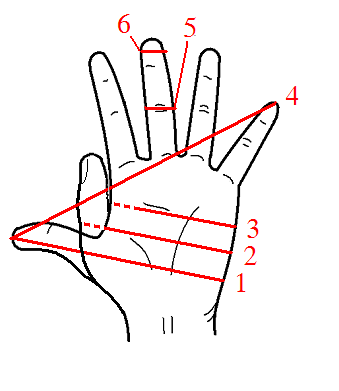anthropic units on:
[Wikipedia]
[Google]
[Amazon]
 The term anthropic unit (from Greek '' άνθρωπος'' meaning human) is used with different meanings in
The term anthropic unit (from Greek '' άνθρωπος'' meaning human) is used with different meanings in
Study of the Moneer South East Area A Complex Industrial Site of Moenjodaro
''East and West''. Istituto Italiano per l'Africa e l'Oriente (IsIAO). 40(1/4): 301-314.
Large number coincidences and the anthropic principle in cosmology
''Confrontation of cosmological theories with observational data; Proceedings of the Symposium, Krakow, Poland, September 10–12, 1973.'' Dordrecht: D. Reidel Publishing. pp. 291-298. units of measurement that are on a human scale are occasionally referred to as "anthropic units", as for example here:Brian William Petley (1985). ''The fundamental physical constants and the frontier of measurement''. Bristol; Boston: A. Hilger. p. 120.
Address by the President to the Mathematical and Physical Section
''Science''. American Association for the Advancement of Science. New Series, 4(90): 392-402. and:Jacob Robert Kantor (1944 929. ''An outline of social psychology''. Ann Arbor, Michigan: Edwards Brothers. p. 120. Accessed June 2013.
archaeology
Archaeology or archeology is the scientific study of human activity through the recovery and analysis of material culture. The archaeological record consists of artifacts, architecture, biofacts or ecofacts, sites, and cultural landsc ...
, in measurement
Measurement is the quantification of attributes of an object or event, which can be used to compare with other objects or events.
In other words, measurement is a process of determining how large or small a physical quantity is as compared ...
and in social studies.
In archaeology
In archaeology, ''anthropic units'' are strata, or deposits of material containing a high proportion of man-made detritus. For example:Massimo Vidale (1990)Study of the Moneer South East Area A Complex Industrial Site of Moenjodaro
''East and West''. Istituto Italiano per l'Africa e l'Oriente (IsIAO). 40(1/4): 301-314.
In measurement
Following the coinage of the term "anthropic principle
The anthropic principle, also known as the "observation selection effect", is the hypothesis, first proposed in 1957 by Robert Dicke, that there is a restrictive lower bound on how statistically probable our observations of the universe are, bec ...
" by Brandon Carter in 1973–4,Brandon Carter (1974)Large number coincidences and the anthropic principle in cosmology
''Confrontation of cosmological theories with observational data; Proceedings of the Symposium, Krakow, Poland, September 10–12, 1973.'' Dordrecht: D. Reidel Publishing. pp. 291-298. units of measurement that are on a human scale are occasionally referred to as "anthropic units", as for example here:Brian William Petley (1985). ''The fundamental physical constants and the frontier of measurement''. Bristol; Boston: A. Hilger. p. 120.
In social studies
In fields of study such as sociology and ethnography, anthropic units are identifiable groupings of people. For example:J. J. Thomson (1896)Address by the President to the Mathematical and Physical Section
''Science''. American Association for the Advancement of Science. New Series, 4(90): 392-402. and:Jacob Robert Kantor (1944 929. ''An outline of social psychology''. Ann Arbor, Michigan: Edwards Brothers. p. 120. Accessed June 2013.
See also
*Anthropic principle
The anthropic principle, also known as the "observation selection effect", is the hypothesis, first proposed in 1957 by Robert Dicke, that there is a restrictive lower bound on how statistically probable our observations of the universe are, bec ...
* Anthropocentrism
Anthropocentrism (; ) is the belief that human beings are the central or most important entity in the universe. The term can be used interchangeably with humanocentrism, and some refer to the concept as human supremacy or human exceptionalism. ...
* List of human-based units of measurement
References
{{DEFAULTSORT:Anthropic units Measurement Social concepts Archaeological terminology History of measurement